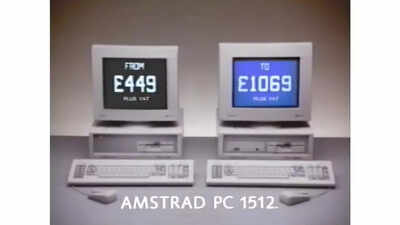British businessman Alan Sugar celebrates 39 years of the world’s first affordable IBM-compatible PC whose sub-$500 pricing ‘left everyone amazed’

British business tycoon Alan Sugar recently took to X (formerly Twitter) to mark the 39th anniversary of one of his most famous products — the Amstrad PC1512. In the post, the Chairman of Amshold Group, who is also a current member of the House of Lords wrote that on the same day in 1986 i.e. September 2, he launched the first affordable IBM-compatible PC. He goes on to recall how, during the product’s unveiling, Amstrad highlighted that most competitor machines then were priced at around £2,000, before revealing its own price of just £399 — a move that stunned the audience and helped rewrite Europe’s computing market. Alan Sugar also shared a YouTube link for those interested in the technical story behind the PC1512 and how it managed to cut into IBM’s dominance.“39 YEARS AGO: On 2nd Sep 1986 I launched the first affordable IBM-compatible PC – the Amstrad PC1512. In the presentation video we showed our competitors’ PCs, all costing around £2,000, then a gasp of amazement from the audience when we announced our price of £399,” Lord Sugar wrote in the post.
What was Amstrad PC1512
The Amstrad PC1512 was a personal computer designed to be IBM-compatible at a fraction of the cost, making it accessible to households and small businesses across Europe. Powered by an Intel 8086 processor and shipped with MS-DOS and the GEM graphical environment, it delivered professional-grade performance at a consumer-friendly price point.The PC was launched at a time when personal computing was still seen as a premium investment. The PC1512 was then praised for combining affordability with strong features, including a 20MB hard drive option, a sharp monochrome or colour monitor, and bundled software that made it usable straight out of the box.According to online reports, the machine went on to sell more than half a million units across Europe, becoming a landmark in the democratization of computing. It not only cemented Amstrad’s place in technology history but also played a role in challenging IBM’s early control over the PC market.






